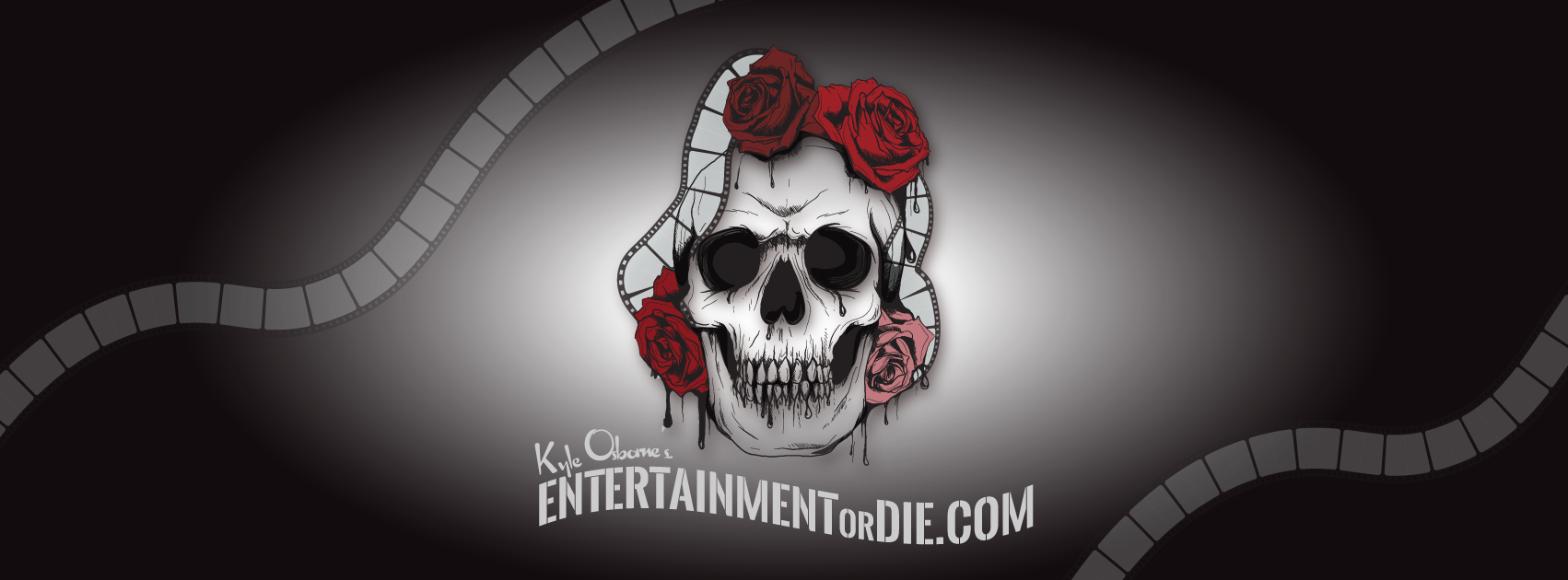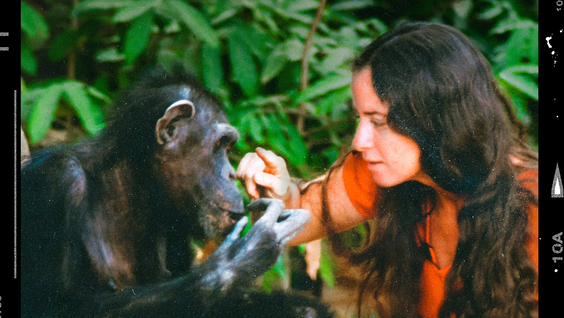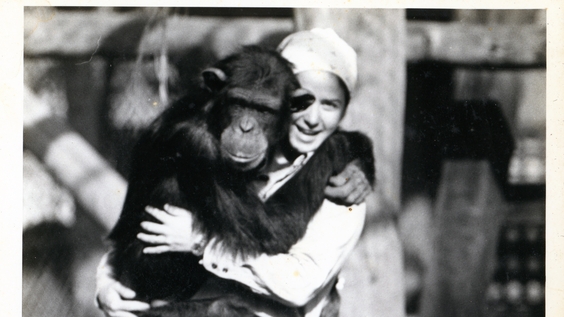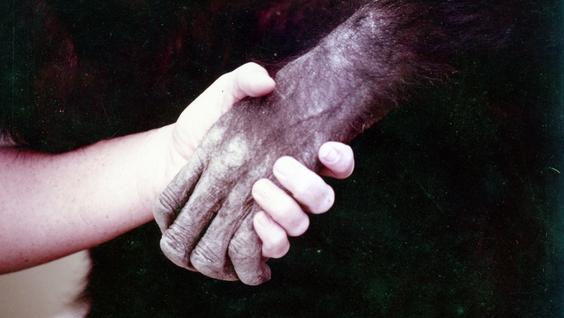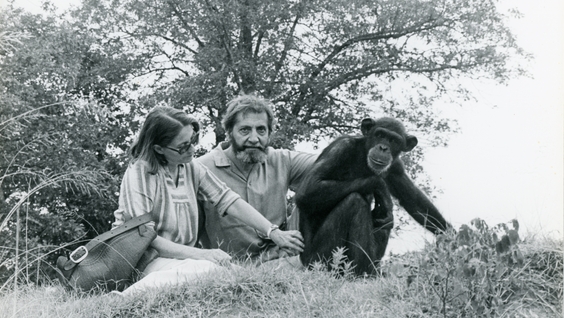To be fair, the title should have included: “And Janis Carter the Human, because it is she, looking straight into the camera ( an amazingly effective style pioneered by the great Erroll Morris) who takes us on a personal journey that makes her, and us, smile, chuckle, and shed tears that are utterly heartbreaking.
Augmented with file film footage, Porter starts at the beginning: Dr. Maurice Temerlin , a professor and psychologist, and his wife adopted Lucy from the Institute for Primate Studies at the University of Oklahoma to raise as their own. As their own child, and with no contact with other chimps.
Teaching her every possible human behavior, right down to eating with silverware, and sign language, the Temerlins naively thought they were providing nurture vs. nature evidence. They hired Porter, a grad student working in the primate studies at the university, as an assistant in 1976.
When Lucy reached puberty, she became destructive and even dangerous. She now had to be confined to a cage, and, ultimately, they decided she should go to a special reserve in The Gambia in western Africa, where chimps raised in captivity are taught how to survive in the wild.
Porter was sent to accompany Lucy for three weeks. She stayed longer. A lot longer.
And here, as I often do – I’d like to stop short of revealing further details. Director Alex Parkinson has assembled this story in a way that elicits a variety of emotions from the viewer, and I don’t want to take that away from you.
Although I loved and reviewed The Secret Life of Whales, which is still streaming, I never really thought I was much of a Nature Doc fan. I still don’t think I’m a nature doc fan – I’m a great storytelling fan, and here we are.
Lucy the Human Chimp Premieres April 29th on HBO Max | 3 ½ out of 4 Stars | Reviewed by Kyle Osborne
